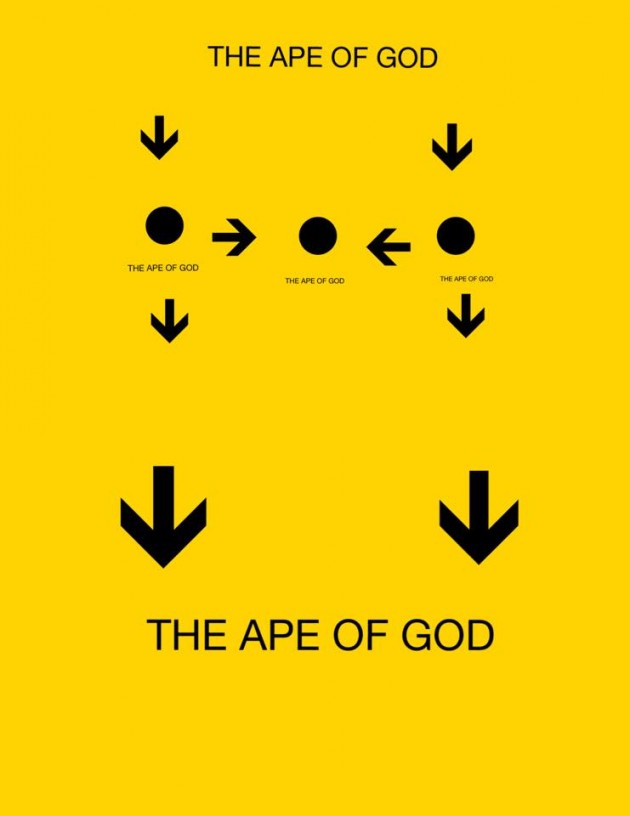Album Review: Old Man Gloom's The Ape of God
Empty Lighthouse is a reader-supported site. This article may contain affiliate links to Amazon and other sites. We earn a commission on purchases made through these links.
We all know that it's hard for a band to stand out in the age of internet saturation and that ever since the release of Radiohead's In Rainbows in 2007, a good album rollout must be accompanied by some sort of gimmick to earn its place in the press narrative.
Remember how Beyonce's latest just came out of nowhere? Haven't we still not recovered from that awful day when the new U2 came and raped our iTunes accounts?
??While it may not be the most attention-grabbing, Old Man Gloom's press trickery is by far the most labyrinth gimmick your reviewer has seen thus far. A few weeks ago, the band released a truncated 8-song version of The Ape of God to the press, knowing full well it would be leaked.
They then revealed that that version was not the *real* The Ape of God, which is actually not one, but two, albums.
On top of that, the two albums are not, like, The Ape of God Part I and The Ape of God Part II, but two separate albums that happen to have the same name (although, for the purposes of this review, will herein be referred to as Part I and Part II).
Confused yet? Profound Lore has released the following flowchart to help you understand:??

Or, in the band's own words:
??"Guess what, assholes. The Ape Of God is two entirely different albums. If you downloaded some leaked shit, you don't have either. You have some bogus version we gave to press, cuz we knew those jerks would leak it (if you reviewed that fake record positively, thank you.
We're just THAT good). We will always trick you. We will always trick you. We will always trick you."
??So, if you're among those who downloaded "some leaked shit," you'll be happy to know that the full release of The Ape of God is quite a bit better and more expansive than that version, unless of course you enjoy your metal straight to the point, in which case you probably wouldn't be reading this review.
??Rest assured: The Ape of God is heavy. Massively heavy, crushingly heavy, etc.
But the real treat here is the ambient stuff.
While tons of bands have bookended their albums with ambient noise for some sort of "otherworldly" effect, very few have actually been able justify the use of these effects for anything other than pumping up their fans before a set or something.
Old Man Gloom incorporate them in such a fashion that actually improves the quality of their songs.
??"A Hideous Nightmare Lie Upon the World" (from Part II) is probably the best example of this. Aaron Turner's vocals are snarly, weird and a little bit humorous, culminating in a nightmarish effect that's 100% appropriate considering the song's title.
Towards the track's midway point, Turner starts a monologue about being a doctor (presumably a nightmarish one) and pleads for the trust of a patient (in said self-contained nightmare) over moaning and guitar feedback.
If you haven't been impressed with a post-metal song for awhile, check this one out. It has more compositional similarities with Tom Waits' "What's He Building in There?" than it does with the legions of Isis clones.??
"Burden," Part II's introductory track, is a fantastic showing of why bassist Nate Newton (also of Converge) is metal's most perennially underrated player. His tone is altogether massive and provides the driving force behind The Ape of God's many dirges.
??As if The Ape of God's rollout wasn't enough trickery, the band decided to load about six minutes of guitar feedback to the front end of "The Lash," which, by all outside indication, is the album's single.
They follow this with "Never Enter," which seems like a straight hardcore track for the first minute or so, but is then bombarded with white noise to make for a conclusion that sounds way better than it seems on paper.??
With The Ape of God, Old Man Gloom has a made an album that's far more captivating than the gimmicks surrounding its release.
On top of that, Aaron Turner and company have poured new life into a dead genre - in a way won't be as easy to ape (excuse the pun) as his former band.
